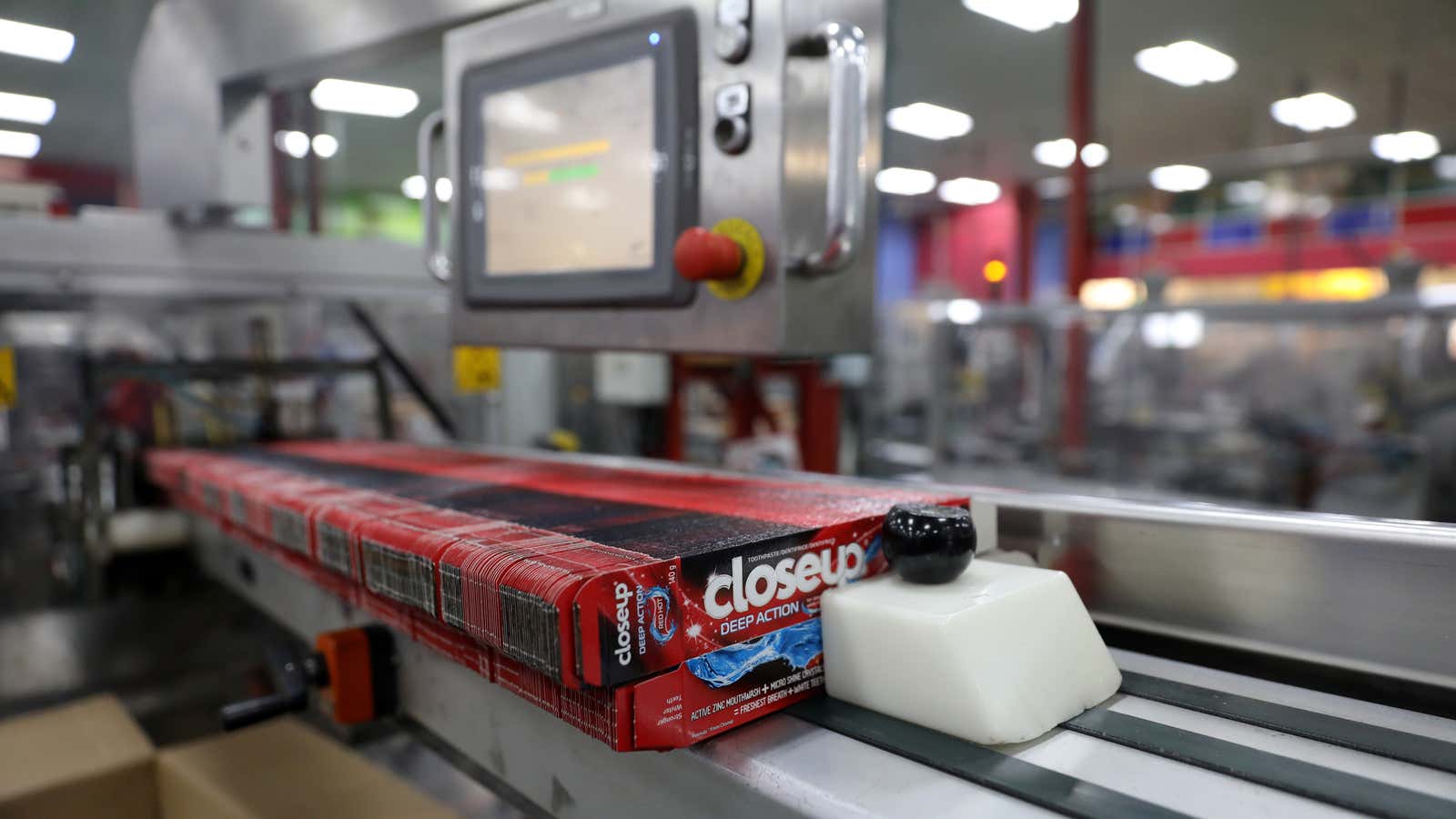Unilever is cutting down production in Nigeria. The company has cited the country’s worsening economic condition for its move, which could now add to the woes of Africa’s biggest economy.
Nigerians may soon bid goodbye to popular brands such as Sunlight, Omo, Closeup, LifeBuoy, Vaseline, Dove, or Knorr as Unilever Nigeria is exiting home care and skin cleansing, to simply remain profitable. In 2021, these products earned the company, which has operated in the country for around a century, more than half its revenues.
The naira’s continued devaluation, a high rate of exchange for the US dollar, and a chronic cash crunch have, together, forced the fast-moving consumer goods company’s hand. For instance, to import manufacturing material, it has had to buy dollars at up to 9% above market rates.
Unilever Nigeria, which recently appointed a new executive director, said it will be “focusing more on business continuity measures that reduce exposure to devaluation and currency liquidity in our business model” as production and operating costs keep rising.
The changes were approved in a board meeting held in Lagos on March 16.
Essentially, the company is looking for a new way to adjust to the Nigerian consumer’s dwindling purchasing power.
High operational costs and job loss
Established in 1923, Unilever Nigeria has, for decades, been banking on the west African nation’s young and vibrant population. It experienced significant growth till 2021 when gross profit rose 84%.
However, it’s all been downhill since then.
Bola Tinubu was elected president in February on his promise of stabilizing the economy. Evidently, he hasn’t succeeded till now, leaving Nigeria’s 219 million citizens worried.
Now, Unilever’s exit from the two production lines implies job losses—755 people worked for it in fiscal 2021—compounding Nigeria’s employment crisis.
Meanwhile, the country’s graylisting by Paris-based Financial Action Task Force (FATF) is likely to increase the cost of doing business. It will make sending money offshore or transacting with global banks and financial institutions more difficult.
Nigeria could see capital inflows decline by 7.6% of the GDP on average due to this graylisting, according to an IMF estimate. This is besides a potential decline in foreign direct investment, rising interest rates, and increased cost of access to capital that FATF’s move could cause.
